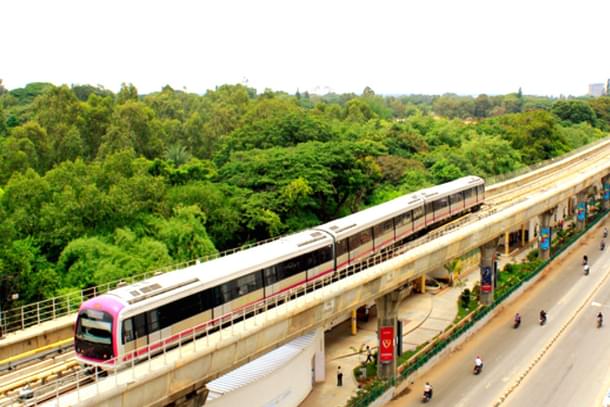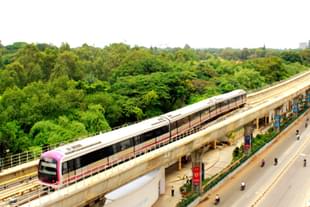News Brief
Mangaluru-Udupi-Manipal Metro Project Gains Momentum As Feasibility Assessment Begins For 64-Km-Long Corridor
Arjun Brij
Mar 06, 2025, 03:14 PM | Updated 03:14 PM IST
Save & read from anywhere!
Bookmark stories for easy access on any device or the Swarajya app.


The proposal for a metro rail corridor connecting Mangaluru, Udupi, and Manipal has taken a significant step forward, with the Urban Development Department initiating efforts to evaluate its feasibility.
Times Now reported that the department has instructed key officials to review the project’s viability and take appropriate action based on the findings.
Raju P, Under Secretary of the Urban Development Department, has directed the Managing Director of Bengaluru Metro Rail Corporation Limited (BMRCL) and the Deputy Commissioners of Dakshina Kannada and Udupi to examine a feasibility report submitted by S Mohanadass Hegde, a former KPCC secretary and current member.
As per a report by TOI, officials have been urged to consider the recommendations and implement necessary measures.
Hegde had previously submitted a detailed analysis of the project’s techno-economic feasibility in a letter dated 22 February to Deepa Cholan, Secretary of the Department of Urban Development.
The study, which forms part of a master plan for 2025-2030, highlights the importance of a 64 km metro rail corridor linking Mangaluru with Manipal via Udupi.
The metro project is expected to enhance connectivity across urban, semi-urban, and industrial areas, integrating seamlessly with existing infrastructure such as airports, railway stations, highways, and ports.
With the region experiencing rapid urbanisation and population growth, the metro is regarded as a sustainable transport solution that aligns with national initiatives like the National Infrastructure Pipeline (NIP), Smart City Mission, and Gati Shakti.
The proposed design also incorporates cutting-edge urban mobility strategies, including electric vehicle integration and smart infrastructure.
The metro’s implementation is planned in two phases. The first phase (2025-2027) will involve preliminary groundwork, land acquisition, and initial construction, while the second phase (2028-2030) will focus on large-scale construction, testing, and securing regulatory clearances from the Ministry of Housing and Urban Affairs and the Ministry of Railways.
To finance the ambitious project, a blend of government funding, public-private partnerships and international investments is being considered.
Collaboration with the Ministry of Railways, NITI Aayog, and the state government will be essential, alongside approvals from urban development and environmental authorities.
Hegde emphasised that a thorough assessment has been conducted, covering technical feasibility, financial viability, environmental and social impact, and risk evaluation.
He asserted that the metro plan aligns with both the state’s urban transport vision and the National Infrastructure Development Agenda, ensuring a well-connected and future-ready metro system for the region.
Arjun Brij is an Editorial Associate at Swarajya. He tweets at @arjun_brij





